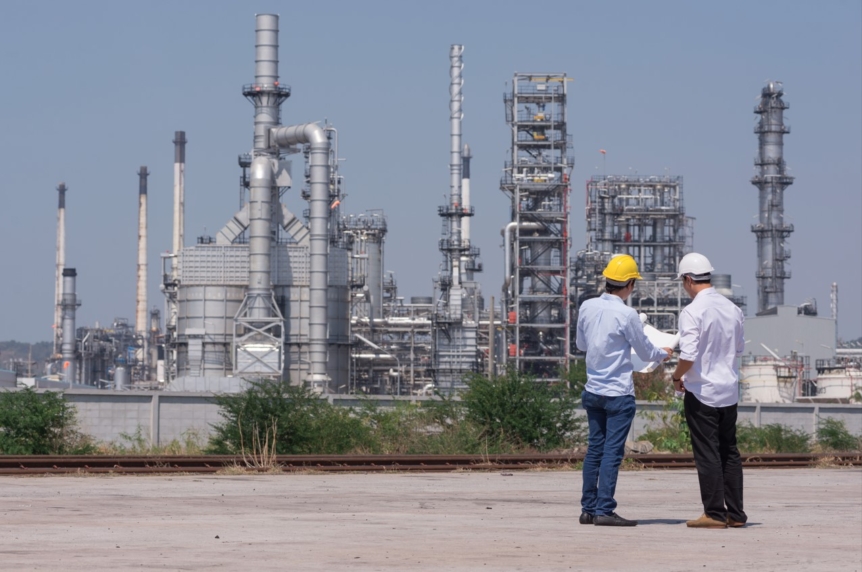Posted by Gina Ekstam, AssuredPartners Electric vehicles (EVs) continue to make headlines, and with recent federal rebates, commercial EV sales have dramatically increased. However, concern continues to center around the slow adoption of electric vehicles in agriculture. Steve Cubbage of Longitude 94 recently explored this issue with the looming bans of gasoline-powered vehicles by 2035 in seven states. Read AssuredPartners’ full article here: Electric Vehicles Face Hurdles in Agriculture Industry
Powering the Future: Recent Developments in the Energy Sector
Posted by Trevor Gilstrap, AssuredPartners In the energy industry, staying abreast of the latest developments is crucial for businesses to thrive. From technological innovations to policy shifts, the energy sector is undergoing transformative changes. In this article, we’ll look at some of the trends shaping the future of energy. Read AssuredPartners’ full article here: Powering the Future: Recent Developments in the Energy Sector
Enhancing Accident Investigation with the OODA Loop
Posted by Tara Crisp, AssuredPartners Accidents are an unfortunate reality in many industries, ranging from manufacturing and construction to aviation and healthcare. Conducting effective accident investigations is vital not only to understand the root causes but also to prevent similar incidents from happening in the future. The OODA Loop, a decision-making and problem-solving framework developed by military strategist John Boyd, can play a pivotal role in improving the accident investigation process. In this article, we will explore how the OODA Loop can be applied to enhance accident investigation procedures and promote a culture of safety. Read AssuredPartners’ full article here: Enhancing Accident Investigation with the OODA Loop
Alternative Energy, Opportunity is Abound Throughout North America
Posted by W. Bruce Murray, Jr., AssuredPartners Across the United States, the Inflation Reduction Act has enabled growth in solar, wind, battery energy storage systems (BESS), renewable natural gas (RNG), biofuel, and hydrogen, which includes the fuel cell industry. Large cities are discovering anaerobic digestion to address municipal waste issues and using the methane off-take and hydrogen for greater profitability. Whether your company is a utility or developer building a portfolio of “green” assets such as hydro power, wind, solar, and BESS, assets are being combined for efficiency. Nuclear energy could be on a rebound with “pink hydrogen” off-take. Clean coal and the generation of “blue hydrogen” could make West Virginia a hub of prosperity in time. Old ammonia plants …
Are Your Rail Cars Properly Secured in Your Yard?
Posted by Tara Crisp-Schwartz, AssuredPartners Did you know that 55% of locomotive and/or rail car movers are not properly secured, 61% of rail cars in yards are not properly secured, and 38% of rail yards have a grade that was a factor in a hand brake count? Proper rail car securement is crucial to ensure the safe transportation of goods by rail. It involves properly placing and fastening rail car restraints to prevent shifting, tipping, or derailing during transit. The securement process varies depending on the type of cargo being transported, but here are some general considerations and practices: Understanding Regulatory Requirements: Familiarize yourself with the regulations and guidelines set forth by the governing bodies responsible for rail transport, such …
Cyber Security Risk in Oil and Gas Operations
Posted by Tara Crisp, AssuredPartners Cybersecurity risks in the oil and gas industry pose a significant threat to infrastructure, operations, and overall stability. With increasing reliance on digital systems, companies are more vulnerable to cyberattacks ranging from financial gain to political motives. One major risk is the potential for cyberattacks to disrupt critical operations. Industrial Control Systems (ICS) can be targeted, leading to operational shutdowns, financial losses, and environmental hazards. Manipulation of control systems could cause explosions at refineries or leaks in pipelines, endangering human life. The theft or compromise of sensitive data is another concern. Oil and gas companies handle valuable information, including exploration data, proprietary technologies, financial records, and government contracts. Breaches can result in financial losses, intellectual …
Employers Require an Acceptable Motor Vehicle Record
By Tara Crisp for AssuredPartners Employers and insurance carriers often require an acceptable Motor Vehicle Record (MVR) for various reasons related to job requirements, liability and insurance purposes, regulatory compliance, company image, and risk mitigation. Job Requirements: Certain positions involve driving company vehicles or require driving as part of the job. Employers want to ensure that employees have a clean driving history and possess the necessary skills to operate vehicles safely. Liability and Insurance Purposes: Employers have a duty to protect the safety of employees, customers, and the public. By reviewing an applicant’s MVR, they can assess driving behavior, accident history, and traffic violations to determine risk profiles and make informed decisions regarding insurance coverage and liability concerns. Regulatory Compliance: Industries like transportation, …
The OSHA General Duty Clause
By Tara Crisp for AssuredPartners The Occupational Safety and Health Administration (OSHA) is tasked with ensuring that employers provide a safe working environment for their employees. OSHA has established a set of safety standards that employers must comply with, including the General Duty Clause. This clause requires employers to provide a workplace free from recognized hazards that can cause serious injury or death. Following are the four OSHA requirements that employers must meet to be cited under the General Duty Clause. Hazard Recognition Hazard recognition is the first requirement for being cited under the General Duty Clause. Employers must be aware of all potential hazards in their workplace and take appropriate steps to address them. This includes conducting regular safety …
Managing the Numbers: A Look Inside TRIR, DART, and Experience Modification Factors
By Tara Crisp for AssuredPartners Oil and gas contractors often secure and maintain work based on their Total Recordable Incident Rate, TRIR, and/or Experience Modification Factor. If either of those numbers goes above a 1.0, then a contractor may not be allowed to continue to perform work for an operator. Understanding how to manage your TRIR, DART and experience modification factor can be a useful tool in maintaining your current and future business operations. The TRIR is intended to assist employers to understand how they, the safety team, and the company is performing on at least one dimension of safety. Because incidents capture and cover such a large part of the safety spectrum, it is one of the most common …
PPE Hazard Assessments in Oil & Gas
By Tara Crisp-Schwartz for AssuredPartners A recent injury incident in Midland, Texas, has spotlighted a little-known hazard related to working with sodium hypochlorite, also known as, bleach. An employee, who was performing water treatment duties in conjunction with the water transfer department, violated the standard operating procedure when working with sodium hypochlorite and suffered second and third degrees burn on his backside. The pump that the employee was utilizing to inject the sodium hypochlorite into the water manifold would not prime. The employee deviated from the standard operating procedure and inadvertently broke the line that contained 12.5% sodium hypochlorite. The employee was wearing the required PPE [issued by the employer and recommended on the Safety Data Sheet (SDS)]; goggles, face …
- Page 1 of 2
- 1
- 2










